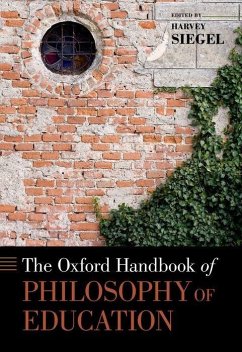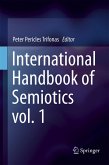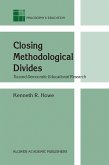Philosophy of education has an honored place in the history of Western philosophical thought. Its questions are as vital now, both philosophically and practically, as they have ever been. In recent decades, however, philosophical thinking about education has largely fallen off the philosophical radar screen. Philosophy of education has lost intimate contact with the parent discipline to a regrettably large extent--to the detriment of both. The Oxford Handbook of Philosophy of Education is intended to serve as a general introduction to key issues in the field, to further the philosophical pursuit of those issues, and to bring philosophy of education back into closer contact with general philosophy. Distinguished philosophers and philosophers of education, most of whom have made important contributions to core areas of philosophy, turn their attention in these 28 essays to a broad range of philosophical questions concerning education. The chapters are accessible to readers with no prior exposure to philosophy of education, and provide both surveys of the general domain they address, and advance the discussion in those domains in original and fruitful ways. Together their authors constitute a new wave of general philosophers taking up fundamental philosophical questions about education--the first such cohort of outstanding general philosophers to do so (in English) in a generation.
Hinweis: Dieser Artikel kann nur an eine deutsche Lieferadresse ausgeliefert werden.
Hinweis: Dieser Artikel kann nur an eine deutsche Lieferadresse ausgeliefert werden.
The collection has notable strengths. The essays cover a wide range of interesting topics from a variety of philosophical perspectives. They are uniformly well-written and accessible to readers without a prior background in the philosophy of education.... As a collection of papers likely to advance research in the philosophy of education, the collection contains many essays that directly take on issues in the area and make important contributions to on-going debates. Peter J. Markie, BNotre Dame Philosophical Reviews








